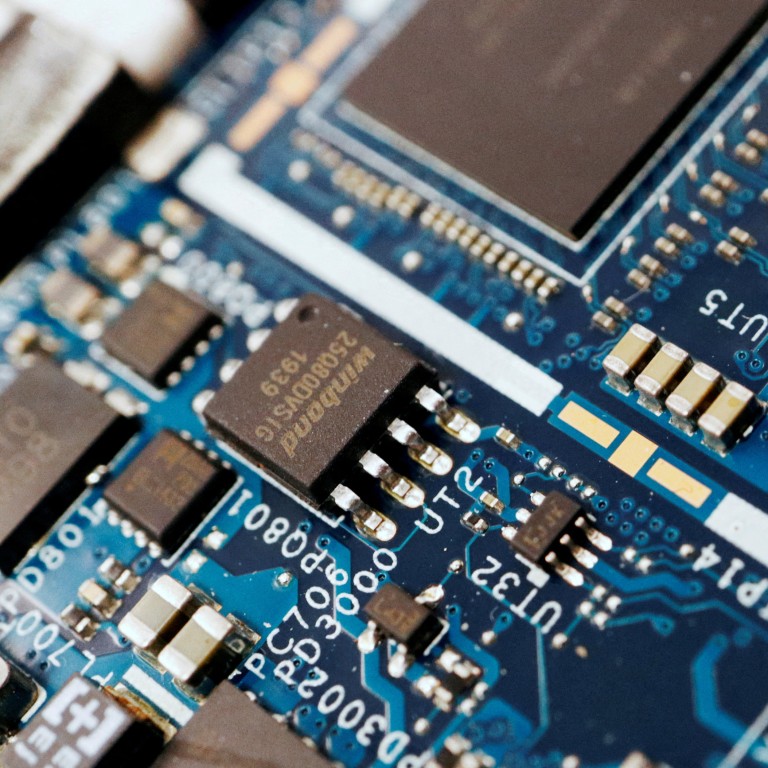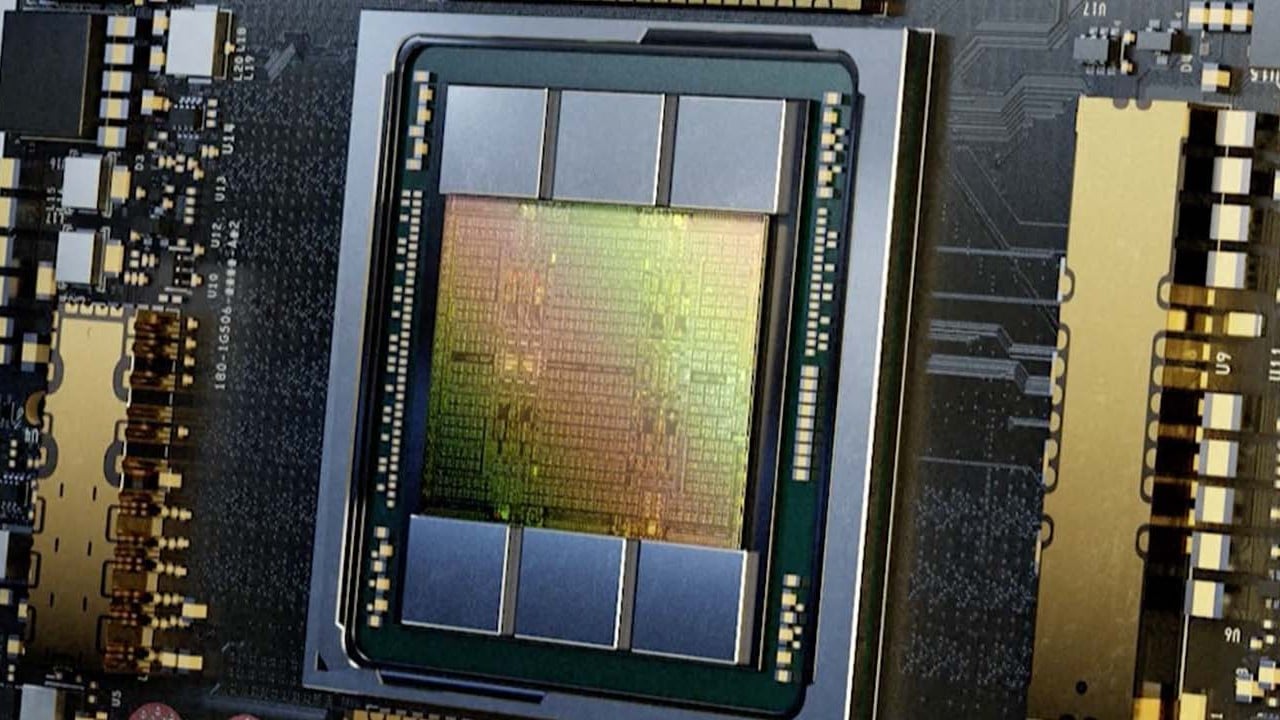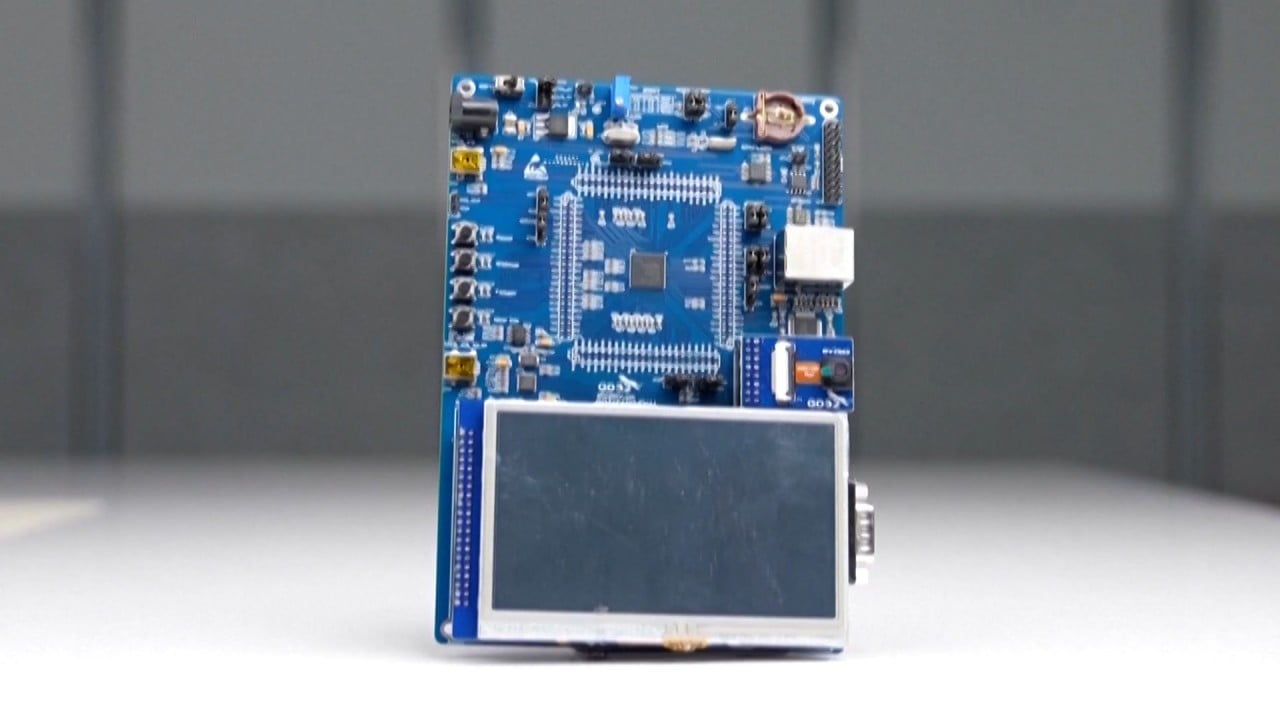
Japan to join US effort to tighten chip exports to China
- Together with a similar move by the Netherlands, this would represent a near total blockade of China’s ability to buy gear for making advanced semiconductors
- Japan’s Tokyo Electron Ltd. and Dutch firm ASML are the 2 critical suppliers that the US needs to make its chip sanctions effective
Japan and the Netherlands have agreed in principle to join the US in tightening controls over the export of advanced chipmaking machinery to China, according to people familiar with the matter, a potentially debilitating blow to Beijing’s technology ambitions.
The two countries are likely to announce in the coming weeks that they will adopt at least some of the sweeping measures the US rolled out in October to restrict the sale of advanced semiconductor manufacturing equipment, according to the people, who asked not to be named because they are not authorised to speak publicly on the matter.
The Biden administration has said the measures are aimed at preventing Beijing’s military from obtaining advanced semiconductors.
The three-country alliance would represent a near total blockade of China’s ability to buy the equipment necessary to make leading-edge chips.
The US rules restricted the supply from American gear suppliers Applied Materials Inc, Lam Research Corp and KLA Corp.
Japan’s Tokyo Electron Ltd and Dutch lithography specialist ASML Holding NV are the two other critical suppliers that the US needed to make the sanctions effective, making their governments’ adoption of the export curbs a significant milestone.
“There’s no way China can build a leading-edge industry on their own. No chance,” said Sanford C. Bernstein analyst Stacy Rasgon.
On Monday, China filed a dispute over the US export controls with the World Trade Organization, the country’s Ministry of Commerce said in a statement. Beijing said the restrictions threaten the stability of the global supply chain and that America’s national-security justification is dubious.
But the global opposition to China’s chipmaking ambitions is mounting.
Netherlands eyes curbs on selling chipmaking gear to China in deal with US
Bloomberg News reported last week that Dutch officials were planning new export controls on China. The Japanese government agreed to similar restrictions in recent weeks since the two countries wanted to act in concert, the people said.
Japan had to overcome opposition from domestic companies that would prefer not to lose sales into China, one of the people said. Besides Tokyo Electron, Nikon Corp and Canon Inc are minor players in the market.
Japan’s Ministry of Economy, Trade and Industry did not respond to requests for comment.
The three countries are the world’s top sources of machinery and expertise needed to make advanced semiconductors. ASML shares added to losses in Amsterdam on the news and were down about 3 per cent.
Senior US National Security Council official Tarun Chhabra and Under Secretary of Commerce for Industry and Security Alan Estevez were in the Netherlands late November to discuss export controls, Bloomberg reported, while Commerce Secretary Gina Raimondo talked about the same issues with METI chief Yasutoshi Nishimura via teleconference last week.
With the move, Dutch and Japanese officials will essentially codify and expand their existing export control measures to further restrict China’s access to cutting-edge chip technologies.
The two governments are planning to impose a ban on the sale of machinery capable of fabricating 14-nanometre or more advanced chips to China, the people said. The measures align with some rules Washington set out in October.
The 14nm technology is at least three generations behind the latest advances available on the market, but it is already the second-best technology that China’s chipmaking champion Semiconductor Manufacturing International Corp. owns.



